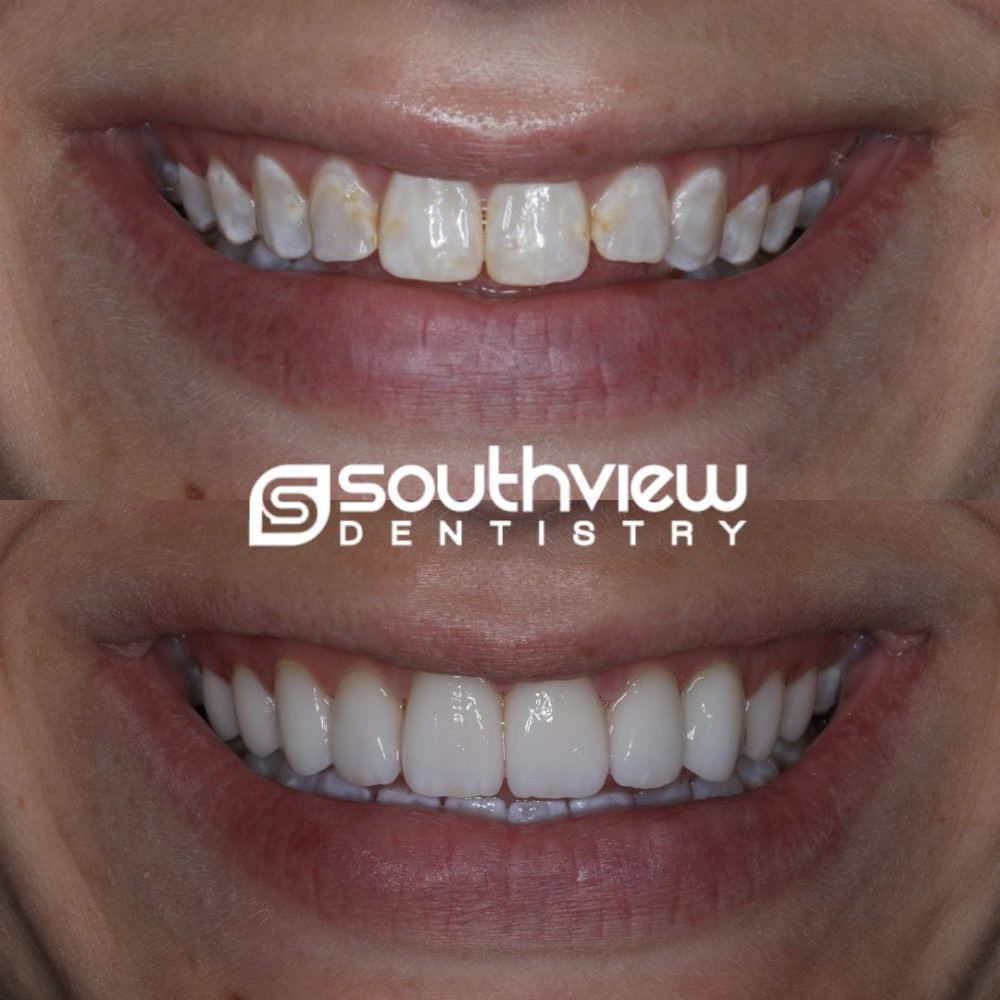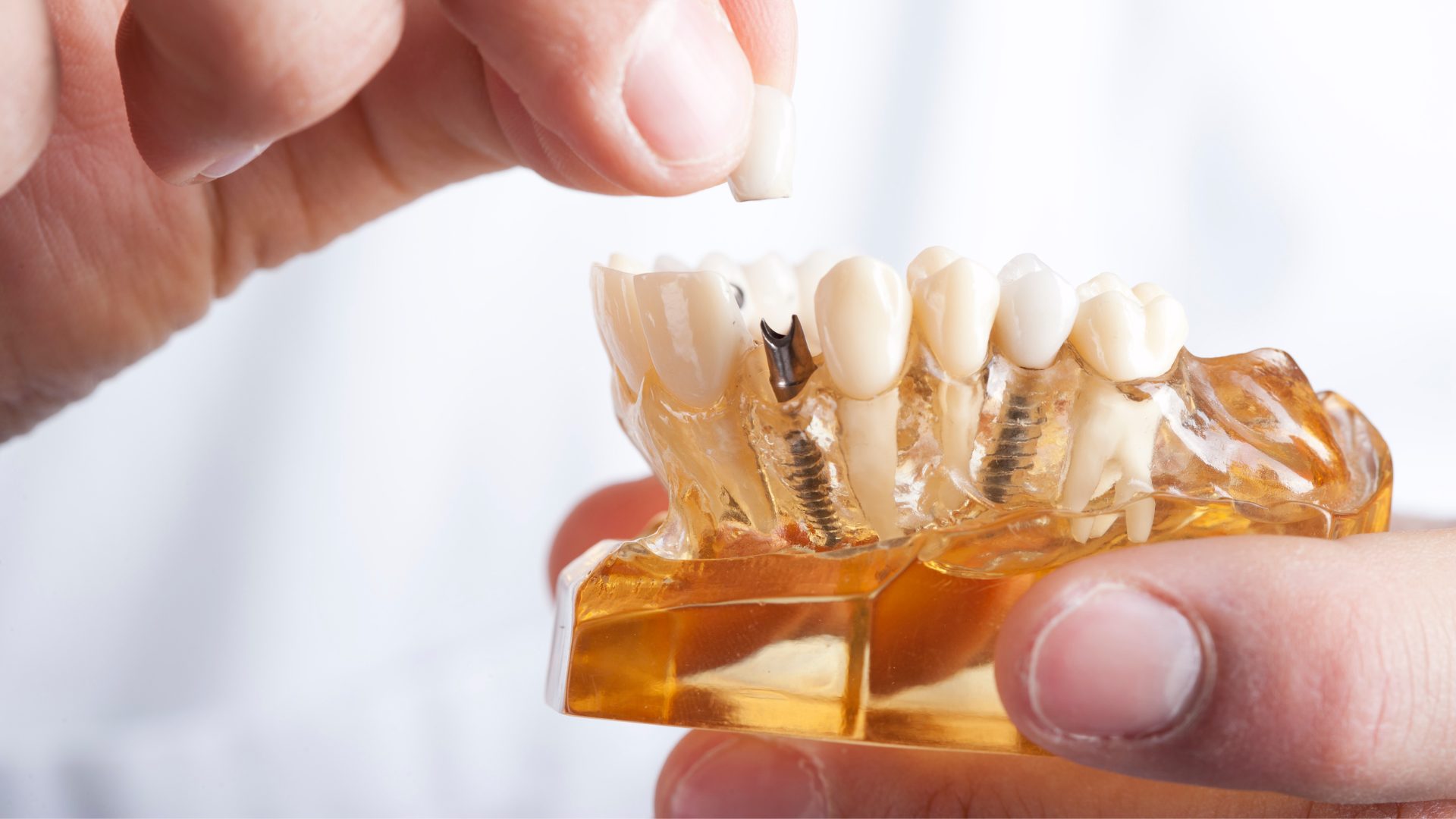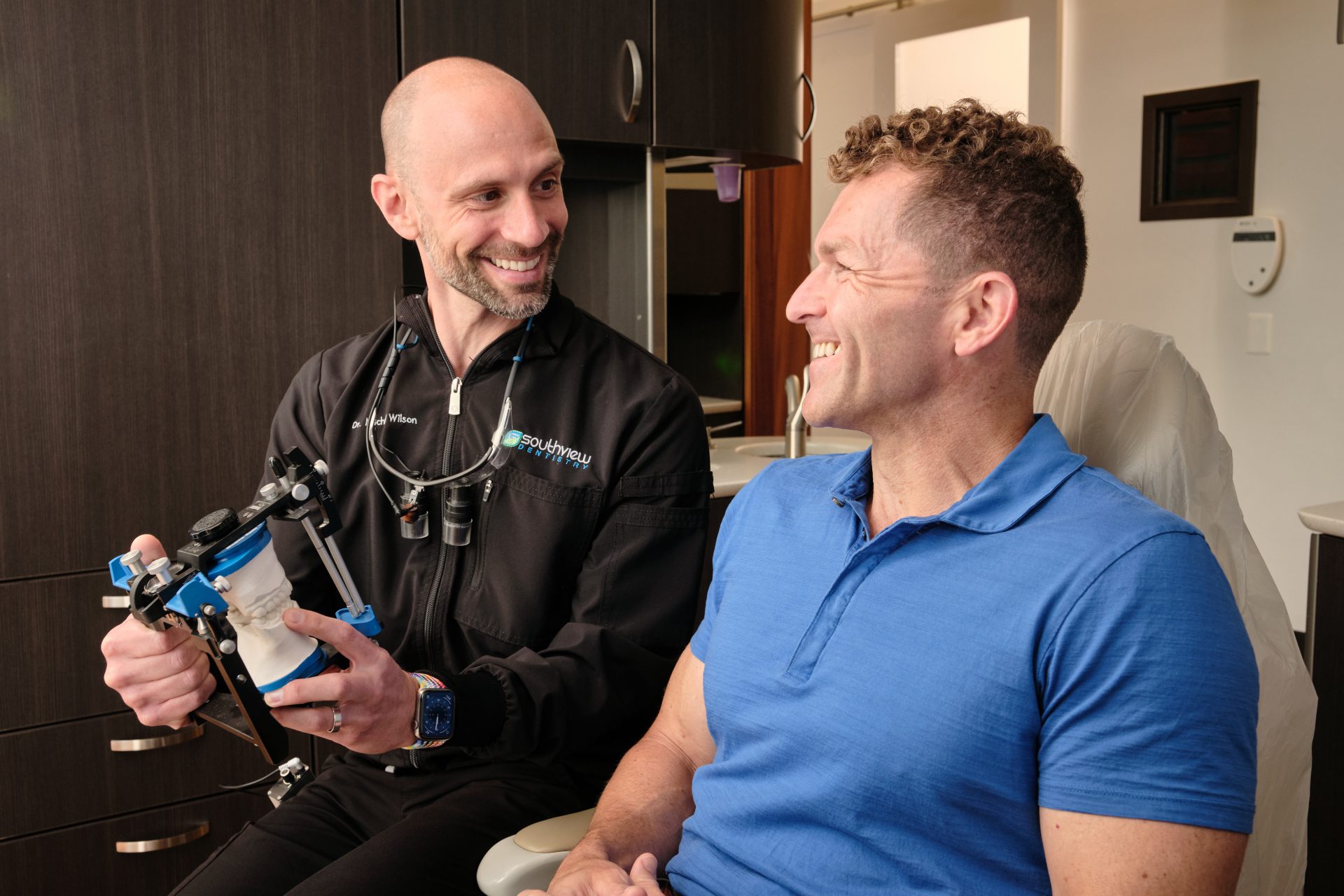
How To Keep Your Smile Makeover: Our Guide
October 3, 2022
Your Top Veneers FAQ
October 8, 2022Sometimes patients ask, “are dental implants painful?”
In short, dental implants involve a surgical procedure. Like any operation, there will be a period of tenderness and discomfort during the recovery and healing process. Surgeons, including oral surgeons, take measures to reduce and prevent unnecessary pain.
The Mayo Clinic describes a dental implant as a procedure that replaces a tooth and looks and functions much like a natural tooth. Implants have several parts, including titanium posts and screw caps that get covered by an attractive tooth-like crown.
The implant root and screw are made from decay-proof titanium, which fuses with your jawbone. As a result, your implant won’t slip, shift or make strange sounds like dentures or bridges often do.
As we explain a few fundamental points about dental implants, please remember this article is purely for educational purposes and isn’t a substitute for dental care. Your dentist will not only help determine whether implants are right for you and will most likely refer you to a trusted specialist.
Benefits of a Dental Implant
It always helps to keep sight of the reason why you want a dental implant in the first place. For many people, a dental implant is an attractive alternative to dentures. A successful implant looks and functions like your lost tooth. You don’t need to deal with denture glue or removable appliances to keep it in place.
Most people find a dental implant comfortable, convenient, and aesthetically pleasing once it has healed. They especially appreciate how the implant stays firmly in place and promotes bone growth during the healing process.
Since every surgical procedure has side effects and discomfort risks, it is crucial to weigh the benefits and the potential downsides. Your dentist will check to ensure your gums and underlying bone structure are healthy enough to respond well to the procedure. If you have known risk factors, your dentist will help you navigate the options, including other procedures.
What to Expect During Dental Implant Surgery
Implant surgery is an outpatient operation usually performed in stages and may take several months from start to finish. You shouldn’t feel discomfort during the procedure since your dentist will use local anesthesia.
The first stage may be to extract the damaged or diseased tooth if you still have it.
Next, your dentist or oral surgeon will prepare the jaw, often using bone grafting techniques if your bone tissue is too soft or deficient.
Your implant will be placed so it fuses into the jaw. To do this, your dentist will expose the bone below your gums. And then they will place the implant. You will then wait for the surrounding area, including the bones, to heal.
After that initial recovery, your dentist or surgeon will place and attach the abutment and eventually the substitute tooth.
Most of the discomfort happens while you heal from each or most stages of this multi-step process. Since healing is so variable, your level of comfort may also vary. Be sure to ask your dentist about which pain management techniques are safe and recommended.
Potential Risks of Dental Implant Surgery
Following each stage of your implant surgery, you may notice some common side effects. These include:
- Tenderness at the implant site while healing
- Swelling of the gums and possibly of the face
- Bruising on your facial skin and the gums
- Pain at or around the implant site
- A small amount of bleeding, usually minor
This pain and inflammation are part of the healing process. However, every surgical or dental procedure carries some risk. Under the care of a skilled dentist, the risk is small.
Some possible but rarer side effects include:
- More intense or serious infection at the implant site
- Risk of damage to other teeth, nerves, and blood vessels in the area
- Sinus problems if the implants interfere with sinus cavities
If you notice serious swelling, fever, and other distressing symptoms, contact your dentist if it is during business hours or even visit urgent care.
However, dental implant surgery is usually no more painful than other outpatient minor surgeries. There is usually some tenderness and discomfort while you heal at the various stages of this multi-stage process.
Be honest with your dentist about your complete medical history and each prescription and over-the-counter medication you take. If you are a smoker, quit several weeks before your operation. Your dentist will assess you to ensure you appear healthy enough for implants, but it helps if you provide all the essential information, even if it doesn’t seem relevant to your oral health.
Some medications or medical conditions may increase the risk of side effects or your body rejecting the implant. The more your dental team knows, the better they can help you receive the best treatment for your needs.
How to Help Ease the Healing Process After an Implant
Try doing these things to aid your body’s healing process:
- Don’t use straws for at least 24 hours after the surgery since the suction can dislodge blood vessels
- Minor swelling is common during the first two to three days
- Use Tylenol® for any discomfort and swelling
- Clean your mouth and soothe it with salt water; rinse three to four times daily
- Do not eat or drink overly hot foods or drinks during the first 48 hours
- Consume a liquid diet for 24-48 hours
- Avoid smoking for at least three days after your procedure
- Follow any other instructions your dentist or oral surgeon gives you as precisely as possible
Schedule Your Consultation
If you are considering implants, schedule a consultation with a dentist who is experienced in implants. If your general dentist isn’t appropriate, ask for a referral to a trusted colleague.
Southview Dentistry offers cosmetic dentistry to the Charlotte area. We feel privileged that our patients trust our comfort and oral well-being. We are also very experienced with dental implants. Contact us today to schedule your consultation appointment.




